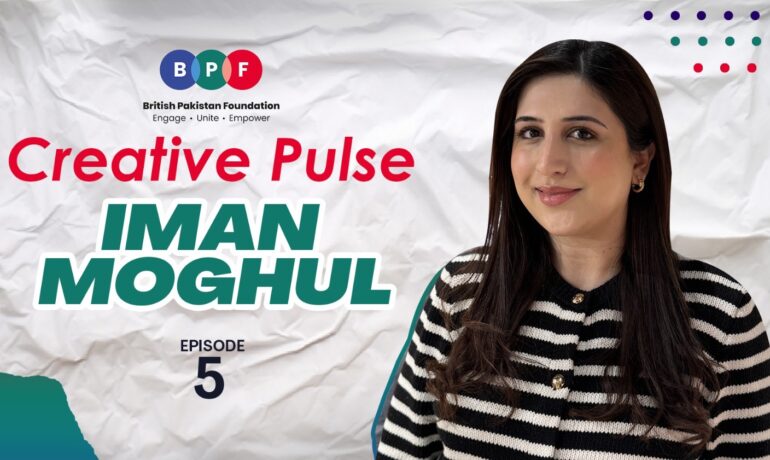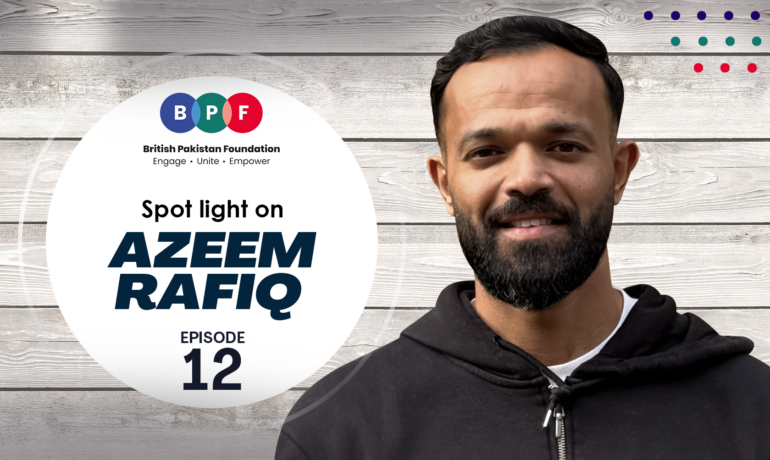Spotlight on Deputy Senior District Judge, Chief Magistrate. Tanweer Ikram
“There is nothing we can’t do, we just need to aim high, work hard and go for it …”
BPF caught up with Deputy Senior Disrtict Judge (Chief Magistrate) Tanweer Ikram, the Deputy Lead Diversity and Community Relations Judge and supporter of Lead Judge in projects engaging with the community and in promoting diversity on the Bench and is a tutor at the Judicial College. Judge Tan was called to the Bar in 1990 and admitted as a solicitor in 1993. He was head of department and equity partner in a medium size law firm and specialised in criminal defence, prosecution work and is a former President of the London Criminal Courts’ Solicitors’ Association. Appointed to the Bench in 2009, he hears extradition and terrorism matters in London and, also, sits as an Associate Judge on the Sovereign Base Areas in Cyprus (where he is acting HM Coroner). He is a contributing editor to Archbold Magistrates’ Court Criminal Practice 2017 and is an Associate Fellow at the University of Westminster; alongside holding two honorary degrees, Doctor of Laws (LLD) from the University of West London and the University of Wolverhampton.
We would like to congratulate our Outstanding British Pakistani of the Month, BPF member, on being appointed by The Queen as Deputy Senior District Judge (Chief Magistrate) TanweerIkram.
View announcement: https://www.judiciary.gov.uk/announcements/deputy-senior-district-judge-chief-magistrate-appointment-ikram/
1. What’s a day in the life of a judge like?
I am just so fortunate to have such an interesting job with so much variety. I sit alone and no two days are alike. I might be trying a youth on sexual offence charges on a Monday, on Tuesday hearing charges against a terrorist and on the Wednesday considering the complexities of human rights law in extradition proceedings. On Thursday, I might even be flying out to the Sovereign Base Area in Cyprus (a British overseas territory) to hear a criminal trial against locals or considering whether to order an inquest in my role as Her Majesty’s Coroner there.
2. What inspired you to practice law? Is there a particular moment you remember where you just knew this is your path?
I have to say I never thought I would be doing what I do now when I was Called to the Bar all those years ago. Then, it was a desire to make a difference and fight injustice, it was either the law or politics and I went for the law.
3. What skills do you believe are the most important when pursuing a career in law, and to climb the ladder to success? Looking back on your professional life, what do you see as the turning points for your career, or a major event or change that impacted you?
It hasn’t been an easy journey, I didn’t start my career with the best academic credentials which would have opened so many doors. It has really been a bit of a zig zag but I did end up as head of department and partner in a regional law firm specializing in criminal law. I was good at what I did and more and more clients came. Now, representing those accused of criminal offences was never glamorous but it did allow me to play my part in building a successful law firm and secure the skills to look beyond life in private practice.
4. As a British Pakistani, were there any challenges you faced when trying to follow your goal of practicing law, and then later becoming a judge? Is there anything that you feel your British and Pakistani heritage has served as an asset or brought to the table that is different?
I have to say that being of Pakistani origin (love going there as a tourist) has never been a hindrance. In the early days, it allowed me ready access to an ethnically diverse client base in Slough where I was born. My rough Punjabi helped me communicate with clients and cultural insight made clients comfortable in seeking me out. The judiciary are committed to ensuring the best suited become the next generation of judges irrespective of background and I have never felt any roadblocks or glass ceilings in my career on the Bench. Having dealt with so many clients from such different backgrounds and living my own life in a mix of cultures has been such an advantage in dealing with court users in the courtroom. I guess, it makes me look at the world differently, that can only be an asset in looking for solutions and making decisions.
5. What’s most important to you today, compared to the 23 year-old TanweerIkram?
In 2014, the Lord Chief Justice appointed me the Deputy Lead Diversity and Community Relations Judge and I now have a leading role in engaging with the community to dispel myths about what we do and explore initiatives to increase diversity in the judiciary. It is now a significant part of my role outside the courtroom. I do some teaching and write in the leading criminal law textbook for criminal practitioners. I would like to do more on that front.
I am an English Judge first but I look different and am obviously of South Asian origin. In that sense, I realise that all of us on the front line are ambassadors and I want to do my job well to ensure that everyone who encounters me feels that English justice has been delivered at its very best.
6. What advice do you have for your young aspiring students and professionals wanting to follow in your footsteps?
I look back and wish I had studied a little harder, it would have made my journey so much easier. I can’t see it, but others say I still lack confidence. I see lack of confidence as one of the biggest barriers to progress. Actually, there is nothing we can’t do, we just need to aim high, work hard and go for it ….
Creative Pulse: In Conversation with Iman Moghul
This episode of Creative Pulse features Dr. Iman Moghul,
Spotlight On Azeem Rafiq
This episode of Outstanding British Pakistanis’ features the inspiring




